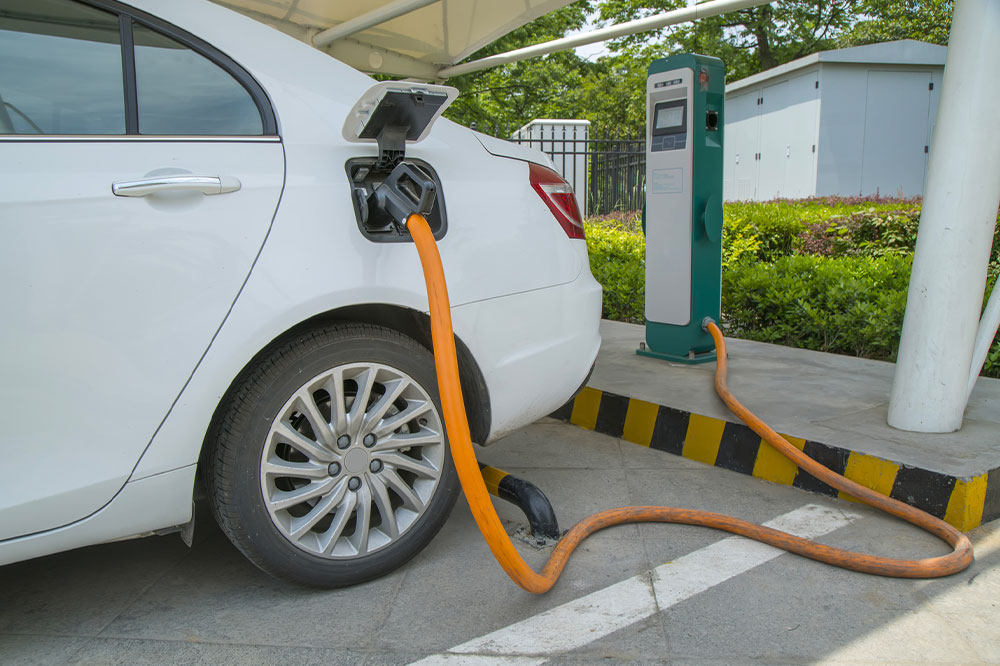9 common mistakes to avoid while buying an electric vehicle

The automobile industry is transitioning toward a cleaner and more sustainable mode of transportation, with electric vehicles (EVs) leading the charge. As EV technology advances and becomes more accessible, many consumers are considering making the switch. But, like any significant purchase, buying an EV requires researching and planning. Deciding in haste can lead to increased expenses and unnecessary hassle. Here are some common mistakes to avoid when buying an electric vehicle.
Not availing of government incentives
The federal government has rolled out rewards for people who buy zero-emission vehicles, including electric cars, since they are more eco-friendly. For instance, one can get a clean vehicle tax credit of up to $7,500 on eligible EVs. Apart from this, many local and state authorities offer other incentives, such as a one-time bonus of up to $1,000 for an EV with a specified battery size or a rebate of up to $6,000. Residents with lower income levels may be eligible for more than $30,000 in rebates and incentives from both federal and state sources. These incentives are set in place to promote the adoption of EVs. Unfortunately, many buyers ignore these financial incentives and end up paying a higher initial cost. Individuals must thoroughly research any potential incentives and benefits their local authorities provide.
Not understanding battery health
The battery is among the most critical components in an EV that help generate power. Sadly, some people ignore inspecting the car’s battery when shortlisting models. Before purchasing, one must understand the type of battery the car has, learn how to optimize it, and inquire about the available warranties or guarantees. Considering these factors can improve the vehicle’s long-term performance and help save money. Most modern EVs have lithium-ion batteries, while hybrid cars utilize nickel-metal hydride batteries. Lithium-ion batteries provide more consistent voltage and are longer-lasting, but extreme temperatures affect their charging capabilities. Buyers must understand such details to ensure their vehicle’s optimal performance and health.
Not factoring in repair costs
EVs can help people save on frequent gas refills. However, they have complex components, which can be expensive to repair. Sure, new vehicles come with warranties that cover repair costs, but they apply for a certain period only. Individuals must think about the long term and save money for potential fixes required after the warranty expires. Car ownership, in general, is a substantial financial commitment, including its insurance and maintenance, so thorough research is crucial before buying.
Neglecting the range
One of the most common mistakes when purchasing an EV is failing to consider one’s daily commute distance and whether it aligns with the vehicle’s range. Potential buyers must assess their daily driving habits to ensure the car can complete trips without running out of charge on the way. Not considering this factor can cause inconvenience by frequently forcing one to halt at charging stations. It can even give rise to range anxiety, where drivers become concerned about depleting their power source before reaching their destination. Customers should also remember that charging an EV takes significantly longer than refueling one’s car at the gas station.
Failing to research charging infrastructure
People often overlook the availability and accessibility of charging stations in their location before buying an EV. Consequently, it leads to inconvenience and frustration when one’s battery runs low. One must evaluate both home charging options and the availability of public charging stations to ensure a seamless travel experience.
Overlooking the total cost of ownership
EVs typically have lower operating costs than their gasoline counterparts, mainly because charging is comparatively inexpensive than purchasing gas. Consequently, they help save a lot of money in the long run. But, at the same time, EVs have a higher upfront purchase price (around $58,000 on average) due to limited supply and a higher battery manufacturing and installation cost. To determine whether an EV is a viable investment, one must calculate the total cost of ownership over the expected lifespan of the vehicle.
Not considering one’s driving requirements
Electric cars offer the convenience of fewer pit stops for recharging compared to gasoline vehicles, which is a game-changer for daily commuting. However, those who travel long distances and go on extensive road trips must remember that charging stations are not as easily available as gas stations. Avid travelers will need to plan their routes more meticulously while considering the location of the charging stations along the way.
Ignoring the weather
Electric cars are often certified to be driven in moderate weather conditions. Smaller EVs with less battery insulation may charge slower in colder weather and provide a 25% lesser range. However, that does not mean all models are unsuitable for colder climates. Before purchasing, one should carefully consider the weather and the preferred EV’s insulation and battery life. One can learn about these aspects on the manufacturer’s website or by visiting a nearby dealership.
Being unaware of leasing scams
People leasing an EV also qualify for the $7,500 tax credit. Having said that, one should be aware of scams associated with leasing a budget-friendly electric car. Low monthly payments while leasing EVs are often accompanied by hidden fees and unexpected expenses. In addition, the cost of any damages or wear and tear is often borne by the one who leases the car. So, individuals must protect themselves against scams by carefully examining the lease agreement before signing on the dotted line.
When purchasing an EV, individuals should compare models thoroughly and clear their doubts regarding the vehicle’s working. First-time buyers can consult their friends and family members who already own an EV and seek their guidance when choosing a model. While researching can take time and effort, it avoids the risk of being stuck with a car that does not fit the bill.